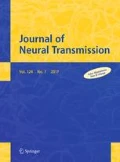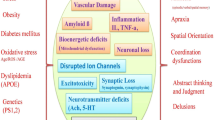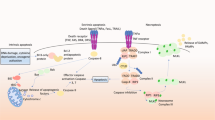Summary.
Cell death by apoptosis comprises a sequence of events leading to the activation of caspases. Caspases execute the fragmentation of the cellular protein and DNA, ultimately, leading to disintegration of the cell. Apoptosis is a tightly regulated physiological mechanism that is crucial during development and thereafter for the maintenance of the balance between cell division and cell death. In contrast to the rather smoothly operating cell death machinery of apoptosis, necrosis is caused by insults leading to the rapid disruption of cellular metabolism and the non-physiological disintegration of the cells. Frequently, toxic events or traumatic challenges trigger the rapid necrotic cell death. Apoptosis and necrosis can be discriminated by a number of morphological and biochemical characteristics. To describe the specific mechanisms of cell death occurring during neurodegenerative disorders, such as Alzheimer's disease (AD), many investigations, both in vivo and in vitro, have attempted to label the particular pathway of cell death either as apoptosis or as necrosis. The elucidation of the mechanism of cell death promises to identify novel pharmaceutical targets for the prevention and therapy of AD. Apoptotic and necrotic cells can be found in AD tissue, and both pathways can be mimicked employing a variety of models systems of AD-associated nerve cell degeneration. Certain genes that are linked to familial AD may render neurons more vulnerable to apoptosis, but it has to be stressed that the vast majority of AD cases are sporadic and not strictly genetically determined. Apoptosis and necrosis may overlap, may sequentially occur under certain conditions, and may not be detected unequivocally. In conclusion, on the basis of the presently available data it has to be stated that although many studies in vivo and in vitro favor apoptosis in AD, there is considerable evidence that a mixture of both events may contribute to neurodegeneration in AD and to its final pathology.
Similar content being viewed by others
Author information
Authors and Affiliations
Additional information
Received February 9, 2000; accepted April 10, 2000
Rights and permissions
About this article
Cite this article
Behl, C. Apoptosis and Alzheimer's disease. J Neural Transm 107, 1325–1344 (2000). https://doi.org/10.1007/s007020070021
Issue Date:
DOI: https://doi.org/10.1007/s007020070021




